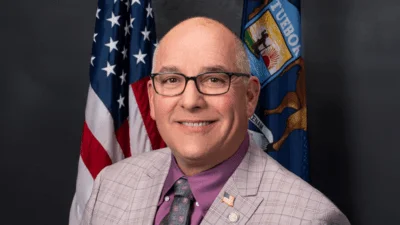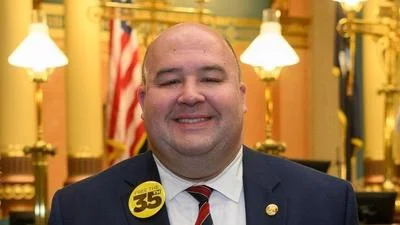Sandy K. Baruah President and Chief Executive Officer at Detroit Regional Chamber | Twitter Website
Sandy K. Baruah President and Chief Executive Officer at Detroit Regional Chamber | Twitter Website
The closing days of the 102nd Legislature were marked by significant legislative activities impacting Michigan's business community. The Detroit Regional Chamber’s Public Policy and Business Advocacy team played a key role in monitoring and advocating for business interests throughout this period.
Several pieces of legislation await the Governor's signature. House Bills 5100 and 5101 propose tax credits for research and development conducted within Michigan, benefiting businesses based on their size. Similarly, House Bills 5651-53 aim to support investments in various venture funds to enhance the state's innovation economy.
House Bill 6088 seeks to enable Wayne County to exceed its millage cap, allowing for a county-wide transit millage vote, potentially expanding SMART services across all localities similar to neighboring counties.
Some proposed bills did not advance. Senate Bill 1173 aimed at permitting municipalities to establish their own labor laws was one such bill. Other stalled proposals included changes affecting environmental cleanup standards (SB 605–611), government regulatory powers (HB 5895–97), tax evaluations (HB 5865-66), insurance claims processes (SB 329), data privacy laws (SB 659), TENORM waste management (SB 1052), and consumer protection regulations (SB 1022).
Looking ahead, road funding remains a priority for the Chamber, urging legislators to find budgetary room for infrastructure investment without harming business competitiveness. Additionally, extending the SOAR program is seen as crucial for pursuing transformational economic projects.
Changes in earned sick time policies pose challenges starting February 21, 2025. The failure to address HB 6056–57 leaves businesses needing adjustments due to minimum wage increases and other changes under the Earned Sick Time Act.
The Chamber’s advocacy team plans continued collaboration with new legislative leaders in addressing these issues. Matt Hall, the incoming Speaker of the House, has identified this as a top priority moving forward.






 Alerts Sign-up
Alerts Sign-up